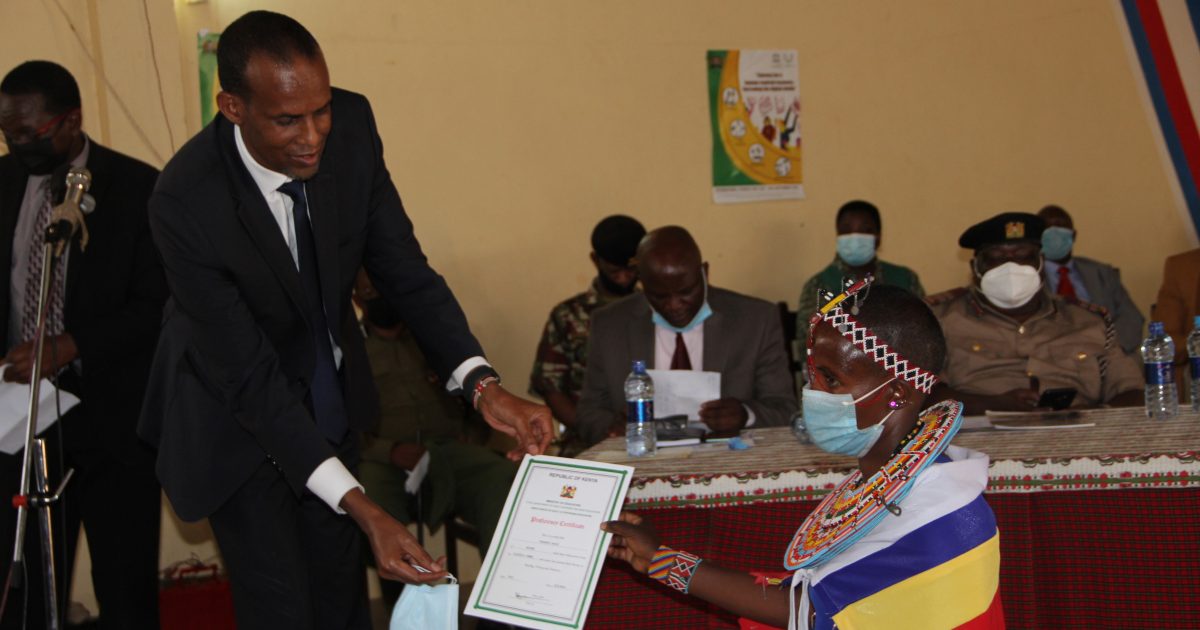Ministry of Education has adopted digital technology in teaching in a bid to increase the literacy levels across the country, Principal Secretary in the Ministry Dr. Julius Jwan has disclosed.
In a speech read on his behalf by the Director-General for Early learning and Basic Education Elyas Abdi during celebrations to mark World Literacy day held in Doldol centre in Laikipia North sub-county on Wednesday, the PS added that literacy levels in the country had made remarkable success in the fight against illiteracy having attained 78 per cent literacy rate compared to 61.5 in 2007.
The PS attributed the increase in literacy levels to sustained Adult Education Programme, the Free Primary Education and the Free Day Secondary Education leading to enhanced access, retention and transition.
Dr. Jwan added that the government embraced digital platforms in teaching after the face to face teaching and learning became difficult in the early days of the Covid-19 pandemic.
“The outbreak of Covid-19 led to prolonged closures of learning institutions. Our schools for example remained closed for nine months as a strategy to curb the spread of the pandemic,” read the statement in part.
The PS further said that his ministry set up measures to facilitate learning during the temporary closure mainly through radio, TV, YouTube and the Kenya education cloud through the Kenya Institute of Curriculum Development (KICD).
“Teachers conducted lessons on digital platforms with their learners attending the virtual classes from the comfort of their homes,” the speech read.
Dr. Jwan however observed that the adoption of digital literacy was not widespread bringing to light the digital divide that exists around the world, and in particular, in developing countries.
“This occasion affords us an opportunity to relook at the role digital platforms play in sustaining and expanding the acquisition of literacy and numeracy skills when normal educational environment is disrupted,” he said.
The PS noted that the growth and adoption of digital platforms for transaction of all manner of business has created more difficulties for people who cannot read and write.
“Mobile phones, tablets, and computers are new modes of communication which are also used for storage and retrieval of information, therefore, the need for us to embrace technology,” he said.
The PS however regretted that teenage pregnancy, early marriages, child labour, alcohol and drug abuse had threated to erode the gains made in ensuring access to quality education, retention, and transition from one level to another is achieved.
By Martin Munyi





